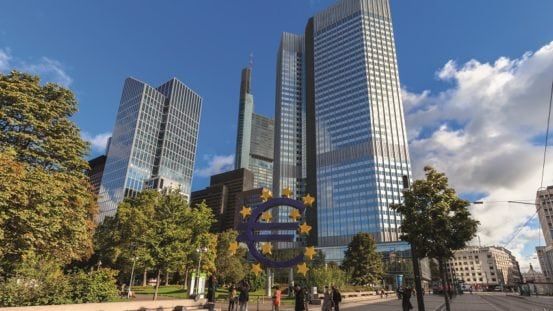The ECB’s decision to raise its base rate to 3.25% has led to one financial giant warning it was “sufficient” to cause a recession.
According to Anna Stupnytska, global macro economist at Fidelity International, the European economy is set to follow a similar path to that of the US after the Federal Reserve raised rates there. This led to a pause in the raising of rates due to the deleterious effects and – given the US is four months ahead of Europe in rate hikes – she warned of an incoming storm.
“Given lags in the transmission mechanism, the euro-area real economy is yet to face the hit,” Stupnytska explained. “Even without further acute stress in the banking system in Europe, tight credit conditions are here to stay, ultimately leading to credit contraction and recession.
“Renewed banking stress in the US adds another layer of uncertainty to the already complex outlook. Crucially, with the Fed on pause, the US-EA policy divergence cannot go far. We continue to stress that the ECB is very likely already in the policy mistake territory that would ultimately require a rapid course correction in coming months.”
According to its own statistics, the ECB maintained steady rates between 0.00 and -0.50 from July 2012 to September 2019. In that time, it adjusted the base rate seven times. It has now, however, gone on to adjust the same rate another seven times since July.
Inflation outlook
“The inflation outlook continues to be too high for too long,” the central bank said on 4 May. “In light of the ongoing high inflation pressures, the Governing Council today decided to raise the three key ECB interest rates by 25 basis points. Overall, the incoming information broadly supports the assessment of the medium-term inflation outlook that the Governing Council formed at its previous meeting.
“Headline inflation has declined over recent months, but underlying price pressures remain strong. At the same time, the past rate increases are being transmitted forcefully to euro area financing and monetary conditions, while the lags and strength of transmission to the real economy remain uncertain.”
All this comes as the Bank of England has hiked the UK base rate to 4.5%, its highest level in more than a decade. Meanwhile, in Germany, Deutsche Bundesbank president Joachim Nagel has argued interest rates should go even higher.







